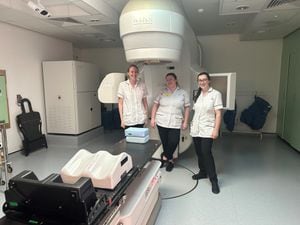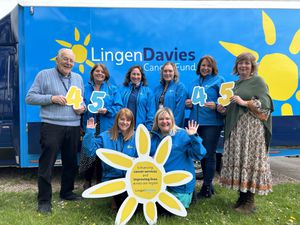Never event had 'negligible' impact on patient, Shropshire health bosses told
A serious medical ‘never event’ involved a locum surgeon implanting the wrong lens on a patient following cataract surgery, health bosses were told.
The never event, named so because they are incidents that guidelines say should never happen, was one of 10 ‘serious incidents’ recorded by Shrewsbury and Telford Hospital NHS Trust in October.
Dr Edwin Borman, medical director, told the trust board at a recent meeting that the impact on the patient had been "negligible".
He said it involved a lens of a slightly different power being implanted on the patient after a cataract procedure.
But Dr Borman said it was a never event, adding: "We are strict about following processes."
The board was told that there had been no attempt at covering up the mistake.
Dr Borman said: "The surgeon involved really did believe they were doing the correct thing.
"They weren't. It was human error."
The never event was the first to be recorded by the trust since November last year.
Chief executive of the trust, Simon Wight, said the locum had their contract “terminated immediately”.
A report to the trust board said the trust, which runs Telford’s Princess Royal Hospital and Royal Shrewsbury Hospital, was contacted by the Healthcare Safety Investigation Branch as a result.
The report states: “All incidents will be investigated using the trust processes for serious incident investigations and the reports submitted to the commissioners when complete.
“The trust was contacted by the Healthcare Safety Investigation Branch (HSIB) to take part in a national review of never events, specifically around the incorrect insertion of intraocular lenses.
“As the never event we reported was the most recent reported nationally they were keen to visit us as soon as possible and have carried out a review during the week of November 13.
“The team will be visiting other trusts as part of this review and will publish their results in due course.
“Feedback received from the HSIB so far was that trust staff had been open and welcoming to the team which they found extremely helpful.”
The other serious incidents recorded in October related to a delay in treatment or delayed transfer, delayed diagnosis, adult safeguarding, a grade three pressure ulcer and complication of surgery.
It is the highest number of serious incidents recorded by the trust within a single month this year.





